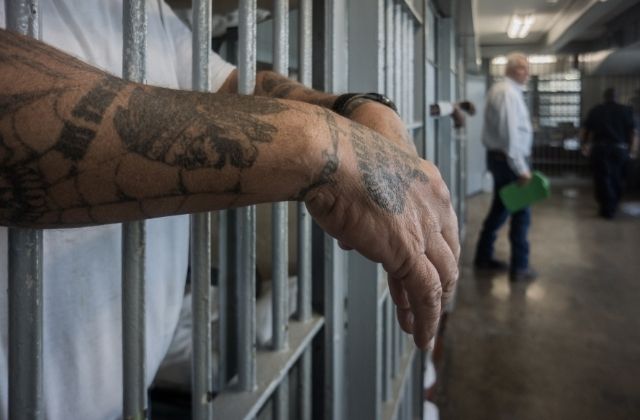Jamila Hodge, director of the Reshaping Prosecution Program at Vera Institute of Justice, works with elected prosecutors to end mass incarceration, address racial disparities, and to make their offices more accountable to the communities they serve. As the country continues to face the racial reckoning sparked by the police murder of George Floyd in May 2020, activists are calling on the Biden administration to make good on its commitment to implementing sweeping criminal justice reforms, including the end of cash bail, mandatory-minimum sentencing and the death penalty, according to The Marshall Project.
Colorlines spoke to Hodge about the steps taken so far by the U.S. Department of Justice (DOJ), and what needs to happen immediately in order for true systemic reforms to take place.
What are your thoughts on the Biden administration’s approach to criminal justice reform so far?
The Biden administration has taken a few good first steps to not only begin to heal the scars of the previous administration, but also address the racial disparities inherent in the legal system’s foundation.
The criminal justice system in the United States is rooted in the violent legacy of slavery and white supremacy, and doesn’t ensure public safety. Until the U.S. centers the historic miscarriage of justice that has wrought 400 years of pain and suffering on Black communities, we will never escape these cycles of brutality. To prevent further trauma and harm perpetuated by the criminal legal system, the Biden administration and the DOJ must take bold action instead of just talking about it.
The reality for Black people—especially those living in low-income communities—is that they feel unprotected and targeted by the criminal justice system at every level. What reforms can the DOJ implement right now that would address racial disparities in the criminal justice system and offer immediate, tangible, positive changes for Black people?
Eliminate mandatory minimum sentences, encourage the end of cash bail in local systems, and abolish the death penalty at the federal level—as the Biden administration promised to do. This would allow for instrumental and immediate benefits for Black people involved with the criminal legal system, who are disproportionately targeted, charged, and sentenced to longer sentences than white people for similar behavior.
In what ways are you and your team at Vera Institute of Justice actively working to push for some of these reforms?
One example I’ve personally been involved with is the need to suspend the DC U.S Attorney’s Office Felon-in-possession (FIP) policy that disproportionately exposes Black people to longer sentences by charging the cases in federal rather than local court. I, along with 86 other former DOJ officials, sent a letter to AG Garland calling on him to end this policy. Elected prosecutors are leading the way in transforming the system and are already doing this important work, AG Garland has given speeches acknowledging the deeper systemic issues. Now is time for the DOJ to put those words into action.
What are the biggest challenges facing the movement to transform our criminal justice system?
One of the biggest challenges to transforming our criminal justice system lies within the system itself. Too many judges, prosecutors, and police either obstruct progressive policies in their communities or may use their discretion to enact harsher sentences and harsher policies.
Currently, the communities most impacted by the system have a limited voice in championing alternatives to incarceration. We need to redefine what public safety looks like by centering the voices of those who are most impacted in determining and implementing policy change.
[Another challenge is that] prosecutors who are committed to doing the work to transform the system are often met with strong backlash and opposition, such as recalls and investigations, and don’t have the kind of institutional support that the system provides to those who are more conservative or traditional.
How do you respond to those who say reform will never be enough when it comes to the American criminal justice system, and that true change will only come once it’s destroyed completely and rebuilt?
That’s a fair statement and line of thinking. We can’t fix a system that’s built on a legacy of racism and still perpetuates it. Transformation takes more work. We need more people power to completely change the system. But that’s what we’re fully prepared to do.
Shrinking the scope and racial biases of the criminal legal system is the first step toward transformation, but we need federal support from the DOJ to keep up this critical work.
We’re working on building this change from the local level up. If the DOJ were to take a leadership role, we know that many more offices would be emboldened to undertake this work. The needs of Black and Brown communities will not be met until we change the way we police and prosecute in this country.
Shani Saxon is a full-time television and film development executive who also works as a freelance writer in the criminal justice and immigration space. She lives in Montclair, New Jersey with her three children and their boss, a rescue dog named Stormy.
